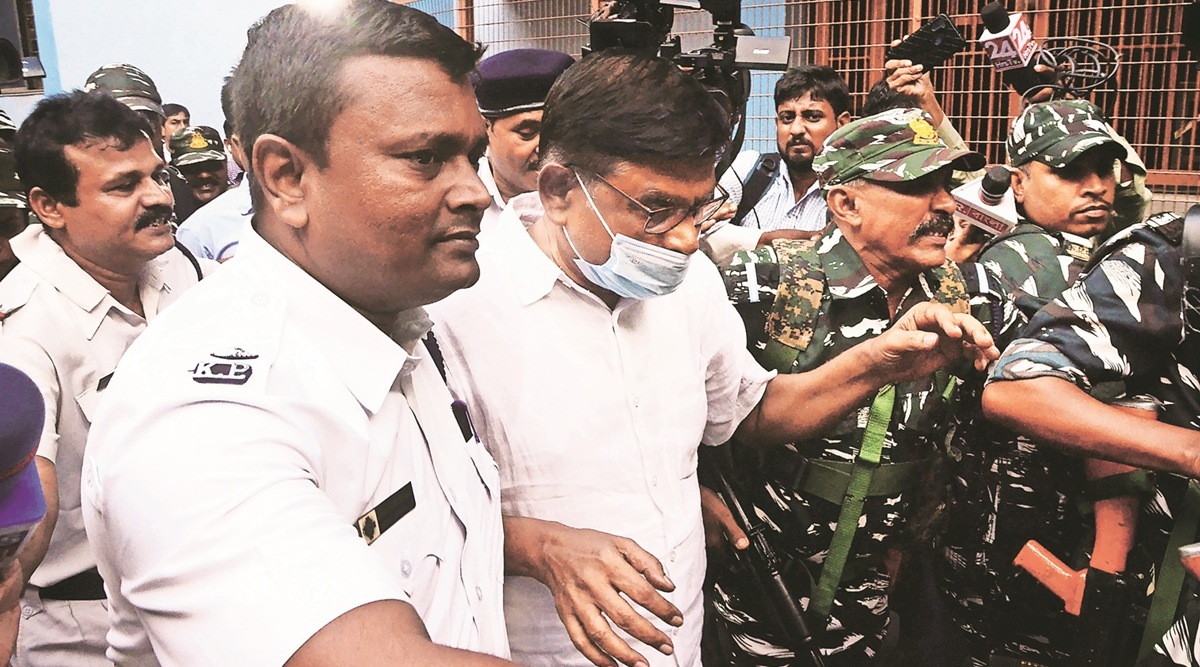PMLA case: SC rejects TMC leader Manik Bhattacharya’s plea against arrest by ED
The bench of Justices Aniruddha Bose and Vikram Nath had reserved its order regarding the matter on Tuesday (October 18).
 TMC leaders Manik Bhattacharya
TMC leaders Manik BhattacharyaThe Supreme Court on Thursday rejected a plea by Trinamool Congress leader and former chairman of West Bengal Board of Primary Education, Manik Bhattacharya, challenging his arrest by the Enforcement Directorate (ED) on money laundering charges in connection with alleged irregularities in recruitment of primary school teachers through the Teachers Eligibility Test, 2014.
In a series of orders in June this year, a single judge of Calcutta High Court had allowed CBI to interrogate Bhattacharya in connection with the scam, and if necessary interrogate him in custody if he did not cooperate. This was subsequently affirmed by the HC division bench.
But the SC, on appeal, directed that no coercive action should be taken against the accused. The ED subsequently arrested Bhattacharya on October 10.
Questioning this in SC, the TMC leader contended that the top court had already protected him from arrest in the case registered by CBI, and thus the ED taking him into custody during this period in the “same offence” is “unwarranted”. In his petition, Bhattacharya urged the court to declare the arrest illegal.
Dismissing his applications, a bench of Justices Aniruddha Bose and Vikram Nath said, “We cannot hold the arrest…illegal, as the issue of money laundering, or there being proceeds of crime, had not surfaced before the single judge or the division bench of High Court.”
The court said, “While testing the legality of an arrest made by an agency…against whom such agency considers subsistence of prima facie evidence of money laundering, we do not think a general protective order directed at another investigating agency could have insulated the petitioner from any coercive action in another proceeding started by a different agency, even if there are factual similarities [in] the allegations.”
The bench said that under Prevention of Money Laundering Act, 2002, money laundering is an “independent offence”. “In the event there is any allegation of the Enforcement Directorate having acted beyond jurisdiction, or their act of arrest is not authorised by law, the petitioner would be entitled to apply before the appropriate court of law independently. But that question could not be examined in a special leave petition arising from the proceedings in which the question of money laundering were not involved.”
The court said that its order on September 27, “restraining coercive action against the petitioner, which we have still directed to continue”, did not operate to prevent ED from carrying on with its probe into allegations under PMLA.
Declining to add ED as a party in the proceedings before it, the SC said, “The grievance of the petitioner against the Enforcement Directorate would have to be ventilated independently before the appropriate forum”.
The bench said, “We do not accept the argument of the petitioner that his arrest was illegal because of the interim order passed by us”, and clarified that “we have not delved into the question of legality of the petitioner’s arrest or initiation of proceeding against him under the 2002 Act”.







